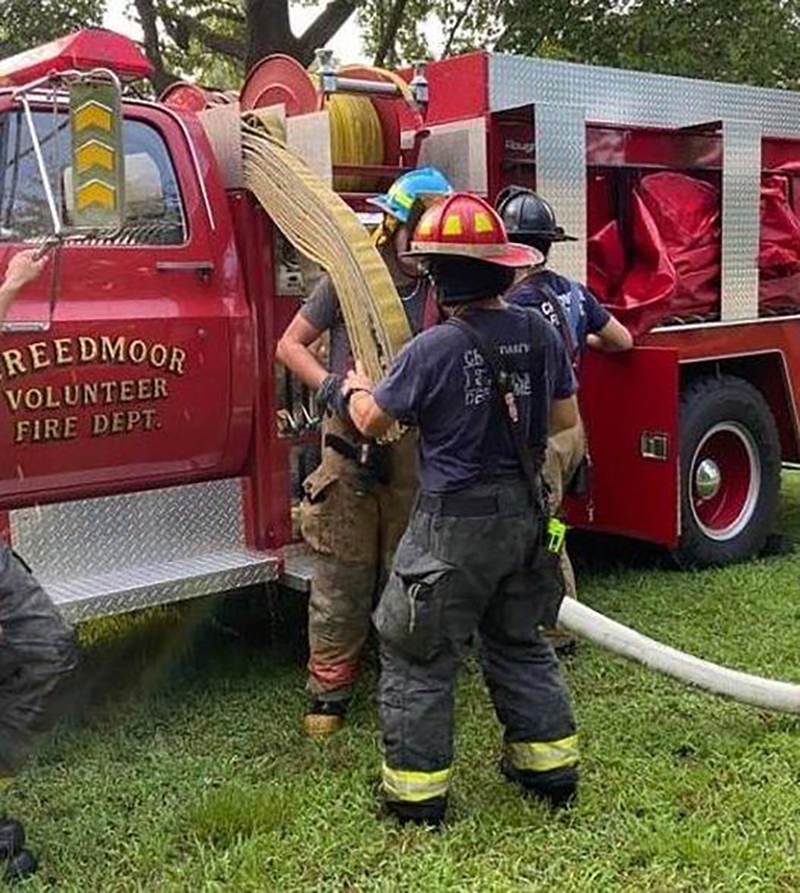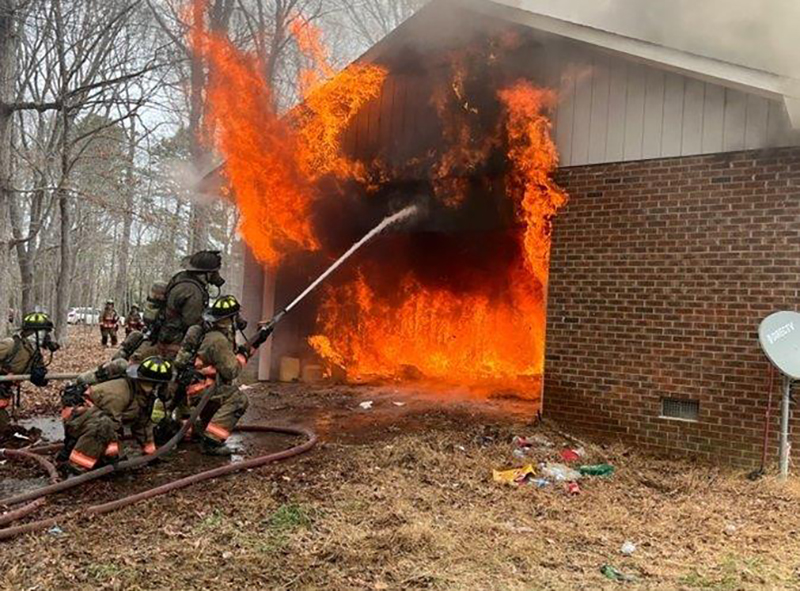VOLUNTEERS CORNER | By Richard Ray
The culture of a volunteer fire department is not achieved overnight; the officers play a key role in its type of culture. The volunteer officer can move the fire department forward to achieve its goals and objectives and have a positive influence within the organization. If you are an officer in a volunteer fire department, what type of culture are you promoting? What training and experience do you have with leadership? Are you working each day to be better than you were the day before?
- The Role of the Volunteer Company Officer
- Going from a Young Volunteer to an Officer
- Volunteer Fire Department Leadership: The Nine Keys to Success
Being an officer within a volunteer fire department is much different than being a chief. If you are an officer, how were you chosen? Was it based on merit, or was it because of a family member? Were you selected or promoted to officer because you are part of a clique, or was it because you displayed technical competence, ability, and leadership skills? Better yet, were you selected as an officer because you respect, sacrifice, trust, and care for others?
Whatever the reason, it is a tremendous responsibility, one that is not to be taken lightly. Officers, firefighters, and citizens are watching your actions in your day-to-day life, not just what you are doing on the fireground or at the fire station. Character is the true indicator of the type of individual and officer you are.
As an officer, what training are you attending, participating in, or conducting that is developing you for your current role? Many times, officers in a volunteer fire department do not find it necessary to participate in or conduct training for the department. However, tremendous value is gained when firefighters see officers actively involved in training, whether it is conducting or participating. When the officer conducts training, it provides an opportunity to build firefighters who accomplish the objectives of the organization, both on and off the fireground. It also allows the officer to learn the strengths and weaknesses of the firefighters he leads, which, in turn, allows the officer to make informed decisions on how to best use firefighters on incidents. Additionally, it provides the officer with an opportunity to mentor firefighters, both young and old. As an officer, you must give the firefighters under your leadership the tools they need to succeed when performing their duties.

(1) This officer is working with a junior firefighter on the most basic of skills: stretching a hoseline. This helps the young firefighter by giving the officer an opportunity to share knowledge and experiences for stretching hose; it also gives the officer an opportunity to practice, too. (Photos by author.)
Leadership Training
For the officer, leadership training is crucial. Not all officers are natural leaders; it is important for the officer to do an honest evaluation of his skill set when it comes to leading others. Officers should have the ability to recognize what areas need improvement and which areas need development, on and off the fireground.
Once an officer has determined the type of leadership training he needs, where does he acquire such training? It is vitally important to get that training from outside of your respective fire department. Attend conferences, listen to podcasts, read articles, and simply immerse yourself in the position.
Many times, volunteer fire department officers believe that they don’t need leadership training because they have already attained a certain level. This couldn’t be further from the truth. When the officer has this type of attitude, the influence and impact he has on others are misunderstood and, many times, credibility is lost because the officer lacks the ability to lead others. I have personally witnessed officers who attended the premier fire conference and didn’t attend a single class. What a waste of an opportunity for the officer and the department!
As an officer, your job is to have a “growth” mindset. Officers should continually work each day to improve in their personal life and fire service career. It takes humility, effort, and gratitude to grow.
Too often, officers become crippled from fear because they are scared to admit what they do not know or that they are afraid to make a mistake. Officers who do not fail or make mistakes are officers who do not try and simply attempt maintain the status quo. Failing to be decisive on the fireground for fear of making a bad decision is dangerous to the firefighters operating there. Failure in the fire service is really kind of simple: Own the mistake, learn from it, and don’t make the same mistake twice.
Creating Structure and Leadership
All firefighters need and crave structure. I tend to think of firefighters as children that need structure, which provides stability and a platform for how they should behave. The same is true for firefighters. Structure and stability are achieved by setting expectations. Firefighters need to know what their leaders expect from them; these expectations are simple and should be easy to follow and laid out at the very beginning of the volunteer’s career, laying the foundation needed to set the tone for being a member of the organization.

(2) Here, the officer directs and leads firefighters in fire attack. One of the most important aspects for any officer is sharing and passing on knowledge.
As the organization changes and firefighters grow, the expectations will change. As things change within the fire service and the organization, firefighters must be reminded of what’s expected of them, especially when that change is warranted or maybe what they have forgotten.
In addition to firefighters’ expectations, chief officers must lay out expectations for line officers, as well. One could argue that this is more critical than the firefighter expectations. Being an officer in a volunteer fire department requires more responsibility and accountability. When chiefs lay out the expectations for their officers, they are establishing a level of performance and behavior that works to accomplish the goals and objectives of the organization. It also allows the chief to delegate a share of the workload. This delegation provides an opportunity of buy-in from the officer and allows all to contribute. Unfortunately, there are chiefs who avoid this because they are “power hungry” and focused on control, which, in turn, creates a toxic work environment. This can often be found in organizations where nepotism is present.
Servant leadership is a leadership philosophy based on the belief that the most effective leaders serve others rather than try to gain power and control and represents one of the fastest ways to build trust within the department. For the volunteer (or career, for that matter) officer, servant-style leadership should be the goal. Officers who embrace this style of leadership value people, have humility, listen, build a culture of trust, and simply care.
Another key element of servant-style leadership is for the officer to have an unselfish mindset. This leader understands that he and his team are a part of something much greater and know how they can help their people achieve greatness and excel in the fire service. They are not focused on who gets the credit but rather who serves as a professional, technically competent team that strengthens the department’s growth and success. When officers work to improve the performance of their people, trust is built from having their best interests in mind.
Great volunteer fire department officers get the most out their people because they invest in them and understand that everything is about relationships. When a firefighter knows the officer truly cares and believes that he can make him better, he will create buy-in and do everything he can for the officer and the organization. As an officer, you are there to believe in your people and help bring out the best in them. You are there to support, guide, encourage, monitor, develop, love, and respect the firefighters under your command.
If you are an officer, what is your attitude? Are you aggressive and abrasive? Timid? The officer’s mindset needs to be in proper balance. Personal growth happens as we learn exactly who we are. Carefully consider the type of officer you want to be. Set your sights on how to achieve it, and go get it. Most importantly, never lose sight that being an officer is not about you—it is about the mission and your people!
RICHARD RAY is a 31-year fire service veteran and a captain with the Creedmoor (NC) Volunteer Fire Department as well as a battalion chief and career firefighter with the Durham (NC) Fire Department. He instructs on a national level, contributes to Fire Engineering, and is a member of the UL FSRI Residential Home Size-Up and Search & Rescue Operations technical panel.

